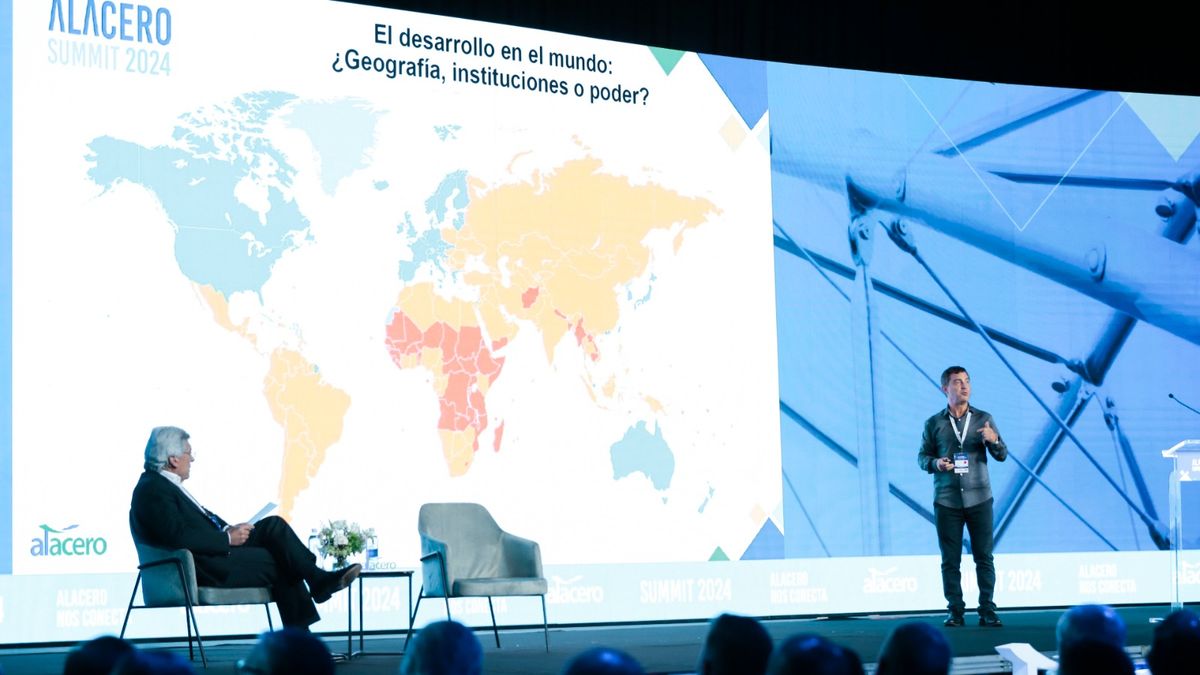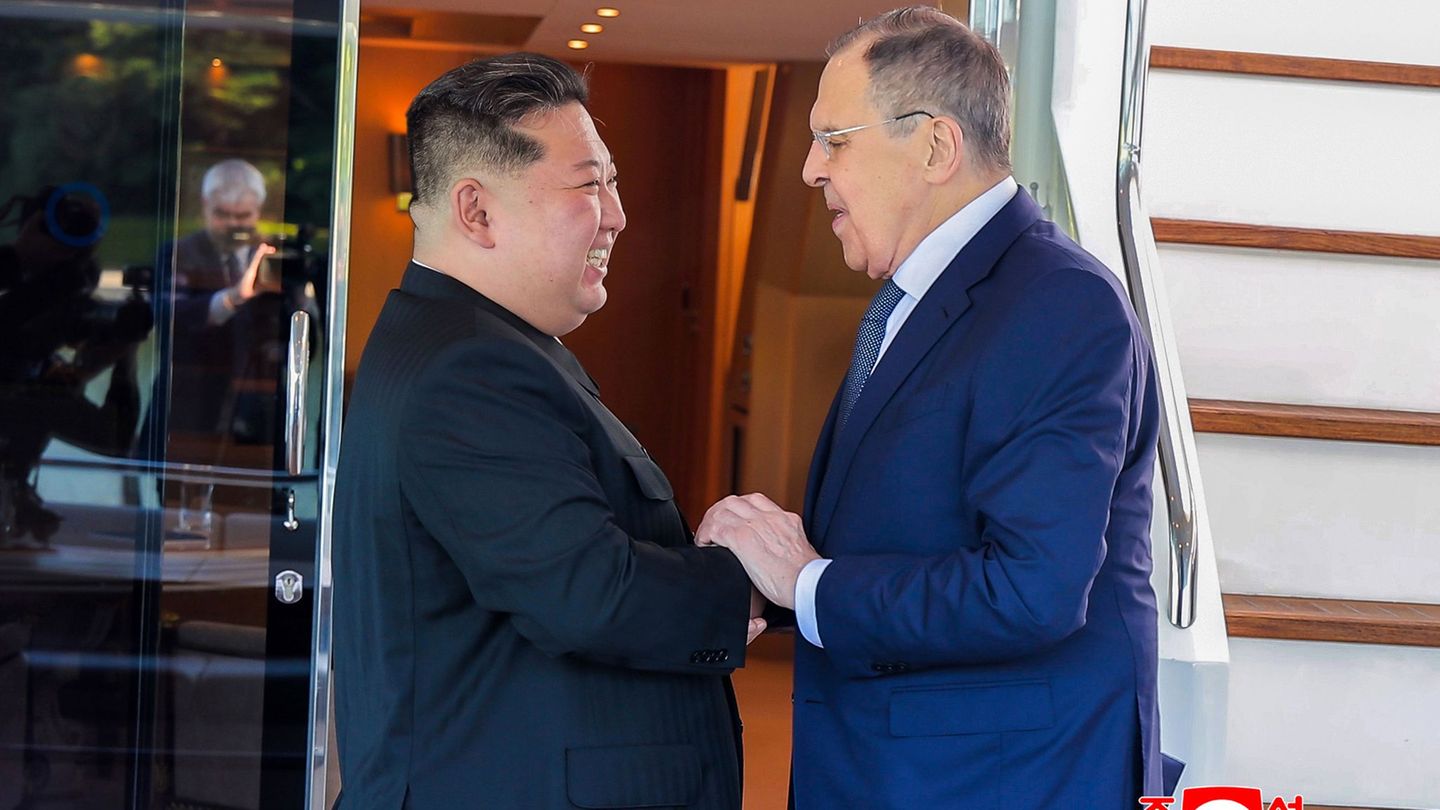The political scientist and academic Andrés Malamud spoke about the economic dependence, political autonomy and the social bomb of the region. What did he say?
“What is coming is complex and the consequences depend on the elections, how they happen, what happens in China, and they depend less on what we can do,” Andrés Malamud, an academic at the University of Lisbon, warned and pointed out that interregional supply chains are what can make steel different from soybeans, nullifying the continent’s intervertical differences.
The content you want to access is exclusive to subscribers.


Soybeans go to China: steel can create a continental market. He explained that if Trump won, we would go to a different type of war: from bullets to protectionism. Below is the most relevant part of his exhibition at ALACERO.
- The development of a country depends on power. Great Britain is a pioneer of development because it based its production in the countries it dominated. We need to serve the developed, be useful to them. And the utility we have for them is decreasing. The world does not see Latin America as a unity, and that is because it is not.
- We are going towards a post-Western world, where Asia is 60% of the economy. Today, it already has 60% of the population. The US is going to continue being a power, China too. What is coming is India, and it will affect the long term of our existence. It will be the center of the talks. Latin America will not be relevant: but what matters is that it is prosperous. And the powers must care to achieve it. Europe is a continent in decline. Germany has one of the worst economic records in the last 5 years, and is the power that moves Europe. It depended on cheap gas from Russia; of China trade; of US defense. For this reason, Germany drags Europe down, and the concern is to cushion the decline.
- The US counts, China counts, India counts. In 20 years, China went from nothing to the top of the world. The rest of the industrial powers are relatively stagnant. The Chinese takeoff is incomparable, it has never happened in history. The world is stagnant: China is moving, and India is slowly moving too. China is also contributing technology. Between 80-90% of the apps on our cell phones are from the US. In China, the proportion is exactly the opposite. Europe does not rule in any of them. And suffer the consequences.
- For example, cars: include steel, technology, labor, and international trade. The energy transition involves electric cars. China is already far ahead of the others and exports a good part of its production. The rest of the countries mostly supply their own internal markets.
- We live in a post-Western world, and we don’t realize it because we are Westerners. Latin America will emerge from this change different, not necessarily worse. It will depend on many variables, and especially if we are north or south of Panama.
- The new Silk Road integrates Asia, except India, integrates Africa, slightly divides Europe, and increasingly divides Latin America. Jair Bolsonaro and Javier Milei said they did not do business with China: they both changed. The dependence on China is increasing, even in Mexico, which depends more on the US.
- We Latin Americans trade less and less with each other. We do not have complementary economies due to primarization. To take advantage of nearshoring, you have to swim against the current. Globalization or regionalization? I say segmented globalization. In Latin America, geography divides us. In the region, economic dependence marks us: we are consumers of other regions. But, for the first time in history, we have political autonomy, no matter who won in each country. Milei, Bolsonaro, Boric, Sheinbaum: the US does not lift a finger. What remains is social turbulence. There are more favorable and less favorable policies for each country.
- Brazil and Argentina have to do things better because if not, primarization is inevitable. China is the largest producer of the main commodities that the world needs. Latin America does not add value to what it produces.
- The economy is increasingly globalized; security, increasingly regionalized. This changes the needs of political management and requires international coordination. It is a phenomenon against the current of commerce, which is heading towards lack of coordination.
- For the first time in history, there is a youth segment that is more reactionary than their parents. There are two reasons: first there is a reaction against what is politically correct, second is that The digital bubbles have been divorced, some transmit aggression, others transmit peace and love. The political and social consequences are drastic. Among them, a demographic collapse. And opening immigration generates conflict and political positions become extreme. It is the young people who are defining the political processes.
- Which countries are more democratic? USA or China? But There are more Chinese saying that China is more democratic than the US, than there are Americans saying that the US is more democratic than China. Furthermore, they are winning games that have only been around for a few years, sometimes less than 10. This happens in Latin America and Europe as well. The impact in Latin America is that it fragments us even more.
- If Trump wins, we will go to a different type of war: from bullets to protectionism. What is good for us? You have to have a sharp pencil. No result will have a clear impact, but will have it, especially if they challenge the result.
- There are people who consider that there is no room to challenge those in power. Today it is clear that no country has the capacity to impose restrictive sanctions. You have to have a million friends, Latin America cannot choose. It needs investments, markets and a geopolitical base. We don’t have wars, we have stability, but then we have to diversify partners and opportunities. He who closes, loses.
- Interregional supply chains are what can make steel different from soybeans, canceling out the continent’s intervertical differences. Soybeans go to China: steel can create a continental market.
Source: Ambito




